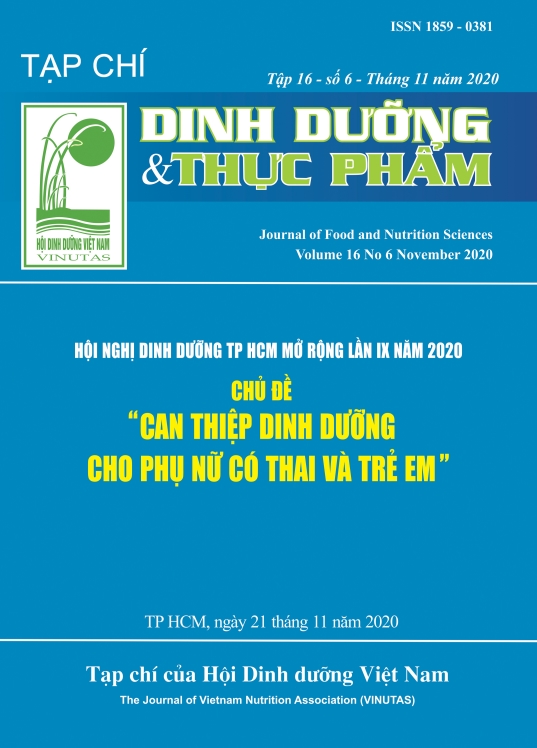NUTRITION CHARACTERISTICS AND THE RELATIONSHIP TO SLOW WEIGHT GROWTH VELOCITY OF INFANTS WITH BIRTH WEIGHT LESS THAN 1250 GRAMS HOSPITALIZED IN A NEONATAL INTENSIVE CARE UNIT AT CHILDREN’S HOSPITAL No 1
Main Article Content
Abstract
To examine nutritional characteristics and the relationship to slow weight gain of
infants with birth weight (BW) < 1250 grams, a longitudinal study that followed up
these infants from birth to 28 days of age, was proceeded in NICU at the Children’s
Hospital No1 from 01 June 2019 to 31 March 2020. Their weight, length and head
circumference (HC) were measured as schedule. The data of nutrition intake were noted. The WGV was calculated at 28 days of age after BW regained. Results: 78 infants
were enrolled in the study. Protein and lipid intake at day 3, 1st and 2nd week were 2.5
(2.1; 3.1) and 1.2 (0.3; 1.9); 2.9 (2.5; 3.2) and 1.8 (1.4; 2.3); 3.5 (3; 3.8) and 3,6 (2,7;
4,2) g/kg/day. The median of energy intake in 1st week, 2nd week and week 3 - 4 after
BW regained was 61 (55; 69), 93.5 (82; 101) and 101 (94; 108) Kcal/kg/day. The rate
of breast milk feeding was 15.4% at the beginning and 9% at 28th day of age. Protein
intake in the first 2 weeks was related to slow WGV at 28th day of age from regaining
BW (p = 0.004; OR = 0.039 (95% CI: 0.005 – 0.328)). Conclusions: Nutrition intake
for preterm infants did not achieve as expected. Protein intake in the first 2 weeks was
related to slow weight gain. We suggest future study which confirms some risk factors
influencing weight gain to improve the growth of infants with BW < 1250 grams.
Keywords
Neonatal intensice care unit, growth failure, WVG, nutrition communication, preterm infants


